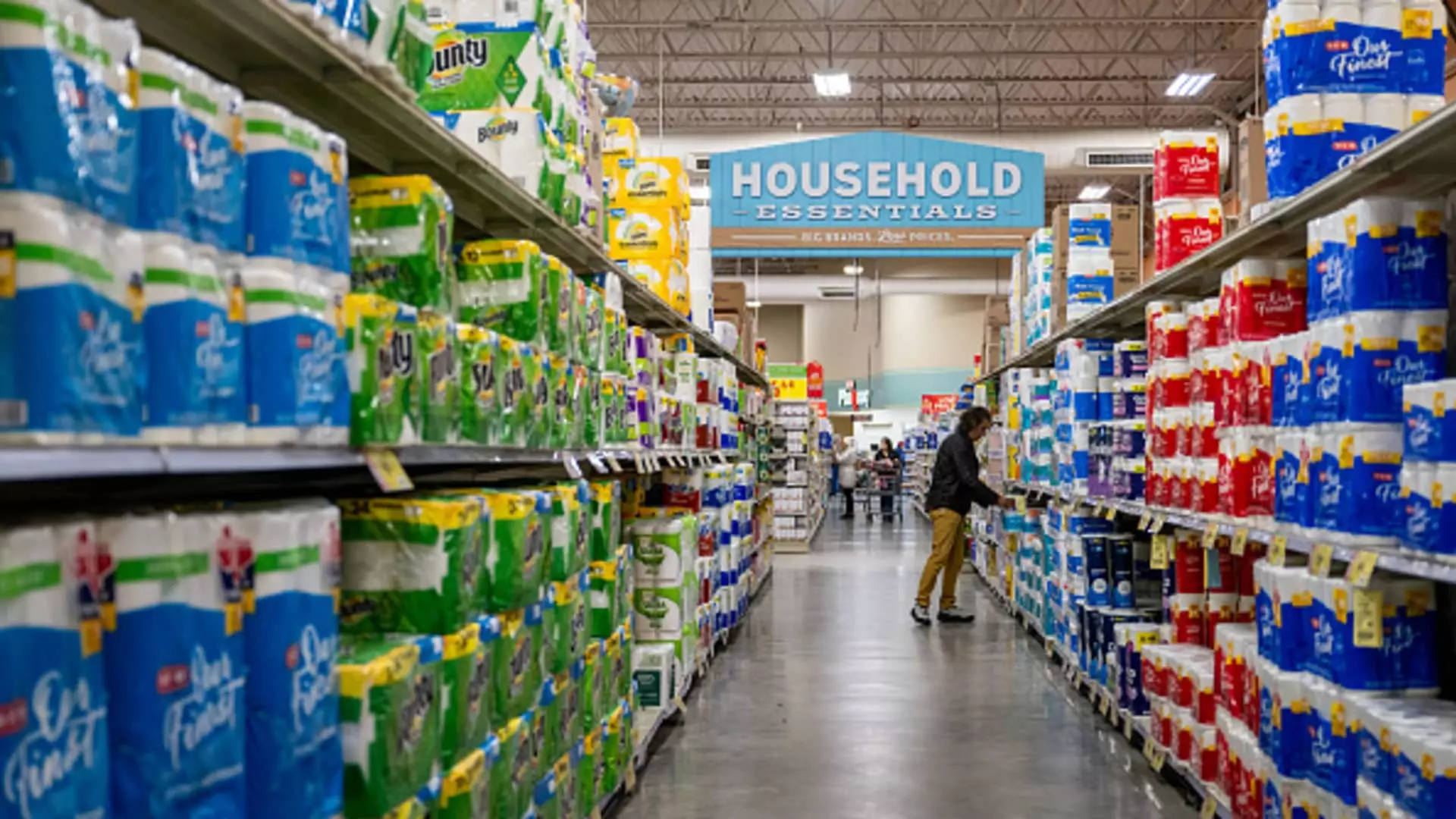In an era where economic policies often oscillate between protectionism and globalization, the recent decision by the Trump administration to impose tariffs on imported goods is destined to create rippling economic repercussions that will directly burden American consumers. From coffee to toilet paper, essential staples of everyday life are projected to see price hikes as the implementation of these tariffs unfolds. While the administration’s intention to revitalise American jobs is well-intentioned, it appears to be a naive approach, utterly failing to account for the complexities of a globalized economy that many U.S. companies rely on. The Consumer Brands Association has articulated these concerns succinctly, warning that tariffs could inadvertently throttle the very businesses they aim to protect.
The Irony of ‘America First’
This renewed wave of tariffs is wrapped in the oft-used mantra of “America First.” Yet, such a slogan rings hollow when the ramifications of this policy roll out. Instead of aligning with the interests of average Americans, the move threatens to reignite inflation, potentially triggering a domino effect on consumer goods. Bananas, a household staple, could see a price surge due to the U.S.’s heavy reliance on Guatemalan imports. The hysterical irony is stark; the quest to bolster American production paradoxically places an even greater financial strain on American households.
The agriculture sector is especially vulnerable. Tariffs targeting essential imports like vanilla and cocoa will hit not only consumers in their wallets but also manufacturers who depend on these imports to deliver their products. As Tom Madrecki from the Consumer Brands Association pointed out, the administration’s policies must recognize that certain key ingredients simply cannot be sourced domestically due to geographical and ecological limitations. For instance, the U.S. cannot produce coffee or tropical fruits at scale—components so ingrained in the American landscape that to raise tariffs on them is a self-defeating exercise.
The Hidden Costs of Tariffs
The ramifications of these tariffs extend beyond merely rising prices at the grocery store. Household staples like toilet paper, shampoo, and diapers—products that many families rely on—are likely to see cost increases. As key ingredients and materials, such as wood pulp for toilet paper and palm oil for personal care products, face substantial tariff hikes, manufacturers are left with no choice but to pass these costs down the line to consumers. The use of “targeted price adjustments” by companies like McCormick and Procter & Gamble is merely a euphemism for impending financial strain on consumers.
Yet, tariffs are far more than just a financial nuisance; they embody a fundamental problem within U.S. trade policy. Those who most need affordable basic necessities—working-class families, for instance—find themselves at the mercy of political decisions that seem to privilege theoretical economic ideals over actual human welfare. The quest for an ‘America First’ policy reeks of myopic protectionism that does more harm than good.
The Reality Check for Investors
Interestingly, while the average consumer braces for the financial burden, the markets reacted differently to the tariff news. Stocks in the consumer staples sector saw slight upticks, indicating a shift of investment from riskier ventures towards companies that deliver fundamental necessities. While shareholders may find solace in these short-term gains, this disconnect highlights a troubling elitism often present in economic policies; the markets can thrive even as everyday people struggle.
In a broader sense, this juxtaposition between corporate gain and consumer pain speaks volumes about the disconnect that can permeate high-level decision-making. If the administration fails to heed the consequences of these tariffs—not just on the economy but on the fabric of American life—it stands to dismantle any semblance of progress it seeks to create, leaving the very people it purports to protect grappling with yet another layer of financial burdens they simply cannot bear.

